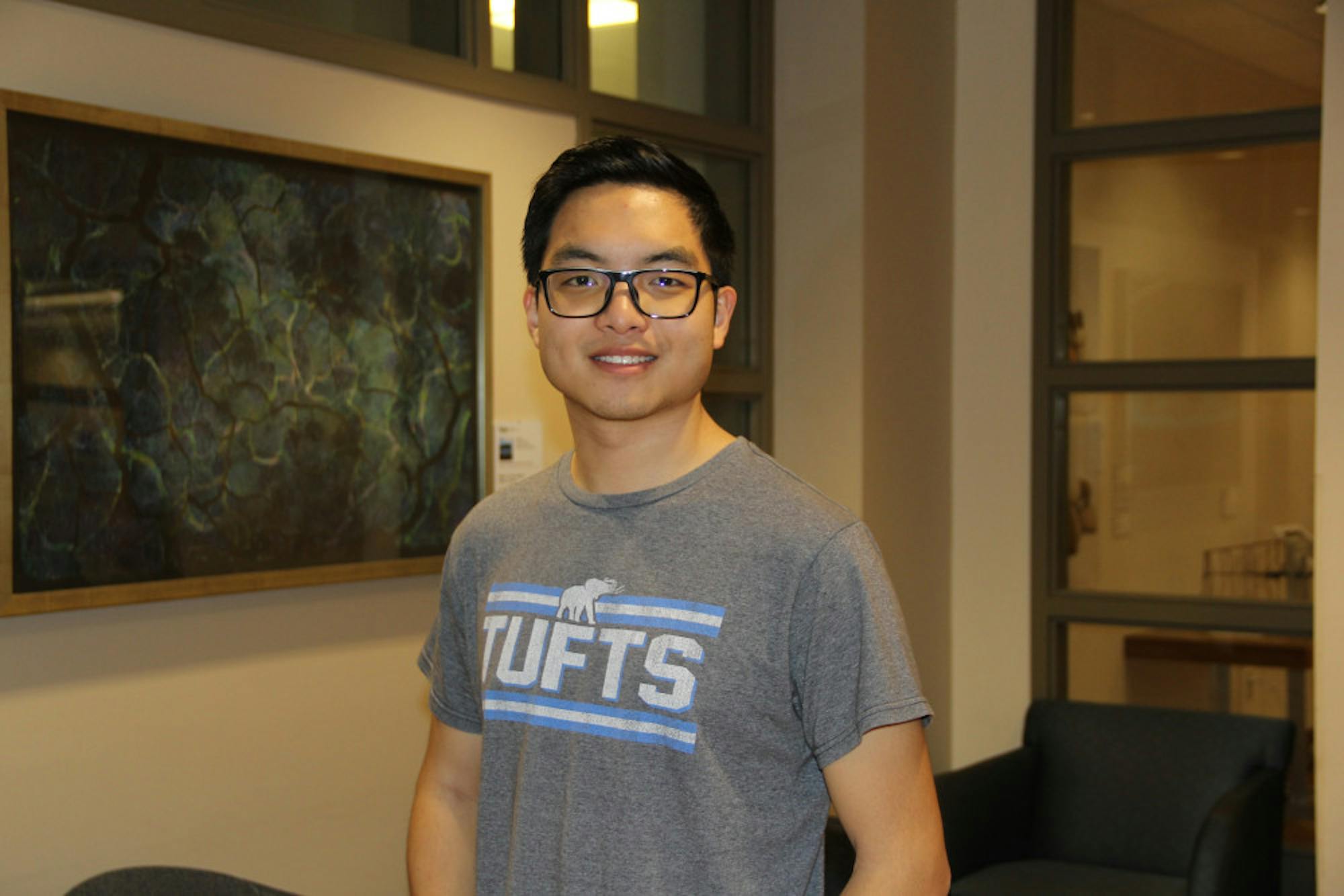Chinese students at Tufts have been working with other students across campus and different colleges to organize aid efforts following the outbreak of the coronavirus in the Hubei province of China.
Haitong Du, who is working to mobilize students at Tufts, spoke to the importance of action.
“As students who are studying abroad, seeing our own country in crisis, we have to do something, anything we can to help,” Du, a sophomore, said.
He was the first to formally gather Tufts students to discuss the situation and figure out what they could do.
“The reason why I’m actively involved is because I was the first one to essentially repost that link and organize a meeting at Tufts,” Du said.
He indicated that the greater initiative is led mainly by graduate students at Harvard and MIT. These students are actively working with the branches of the Chinese Student and Scholars Association (CSSA) at different universities, including Tufts, Harvard, MIT, Wellesley, Bentley University, Boston College and Brown.
Cici Chen (LA '18) spoke with the Daily about her role in this initiative.
“I’ve mainly been basically a liaison between the Tufts fundraising group and the broader Boston area fundraising team," Chen said. “The Tufts organization is mostly only responsible for fundraising. For the Tufts group I was mainly helping them by keeping them informed of what was going on in the main group."
She said that the group's goal is to ship medical equipment to China; specifically, Dupont coveralls that can be worn to protect from the disease.
“Originally we were debating whether or not we wanted to donate facemasks or coveralls,” Du said. “We decided to donate coveralls because China has enough factories to make facemasks, but not enough factories to make coveralls. Not enough coveralls for 40 million people.”
Their aim is to get 10,000 coveralls to the city of Huanggang in the Hubei province, where the coronavirus originated in the city of Wuhan, Du and Chen explained.
Du indicated that they chose Huanggang as opposed to Wuhan, because it is smaller in size and larger cities tend to receive more aid.
“We are primarily focusing our efforts on the peripheral communities of Wuhan,” Du said. “They are not receiving as much media attention and are not receiving as much administrative attention.”
The students have organized an operational chain that consists of buying the coveralls, shipping them to China and having volunteers on the other side to collect and deliver the coveralls.
The group has even received acknowledgment from Huanggang, Du confirmed.
He explained the contents of an official document from the Huanggang city administration, which acknowledged the completion of the logistical chain. The document acknowledged that the group of Boston colleges will donate goods and that the government's office will accept their donations, Du said.
Jay Yang, a student from Wuhan, highlighted the importance of these aid efforts.
“I think every bit of our support, donations and stuff, is going to be a great contribution to the betterment of the current situation in our home,” Yang, a senior, indicated.
So far, the group has collected $2,200 through personal donations given by students from all the universities involved, but expanding their scope to include American students has proven difficult, Du expressed.
At Tufts specifically, the Office for Campus Life (OCL) has policies and procedures in place for student organizations to fundraise, but Du and other students are not operating under the discretion of a formal organization or club, he said.
Chen, who in communication with the OCL, spoke about some of the difficulties of fundraising for their initiative.
“The problem is there is really no clear guidelines for what a non-official organization can do, but the OCL offered to reserve a table for us in the campus center," Chen said. "I think our strategy mainly is to post online and to post posters on campus.”
Even if they are able to promote their mission, Du is unsure how successful they will be in gathering donations. He believes the success they have experienced so far among Chinese students is just for that reason — that they’re Chinese.
Du noted that in his experience, when the Ebola epidemic spread, he did not donate as much money as he did to efforts to stop the spread of the coronavirus in China.
"I feel sorry about [the Ebola epidemic], but I don’t really know if there’s anything I can do," Du said. "If you want me to donate, when I swipe my card at CVS and it gives the $1 or $2 donate button, I will click the $2 button. But I probably won’t do anything beyond that."
He acknowledged that the coronavirus has a more personal impact on him.
"But this time I donated $100. So I would say there’s definitely a difference when it’s something going on for you personally,” Du said.
Yang indicated that this is a personal issue for him, given that he is from Wuhan and returned to campus from winter break just as the news on this disease was first breaking. Yang reflected that people knowing where he is from makes him feel uncomfortable, especially because Wuhan was a fairly unknown city before the coronavirus started.
“That is a very subtle feeling, which is new to me," Yang said. "I think people might think wrong of me, so yeah, it took a long time to deal with that feeling.”
Despite feeling positive about the work being accomplished by Tufts students and others in the Boston area, he expressed difficulties maintaining a positive outlook about the future.
“It seems like this thing is going to go on for a while," Yang said. "So I’m not very optimistic about everything. I just want the thing to stop.”
Students mobilize aid for Hubei province in China following coronavirus outbreak

Haitong Du, one of the student organizers for the Hubei province fundraising campaign, poses for a portrait in Tisch Library on Feb. 4.





